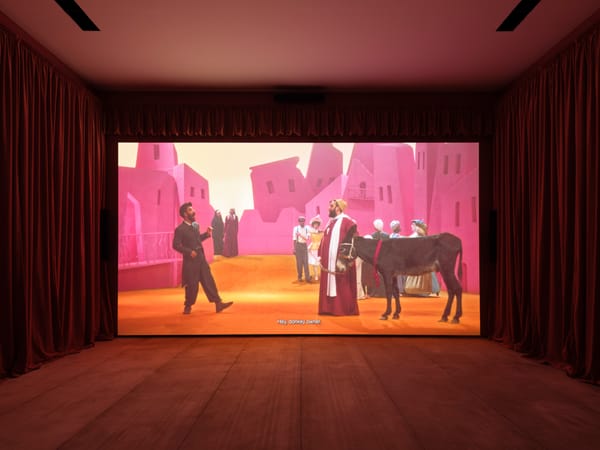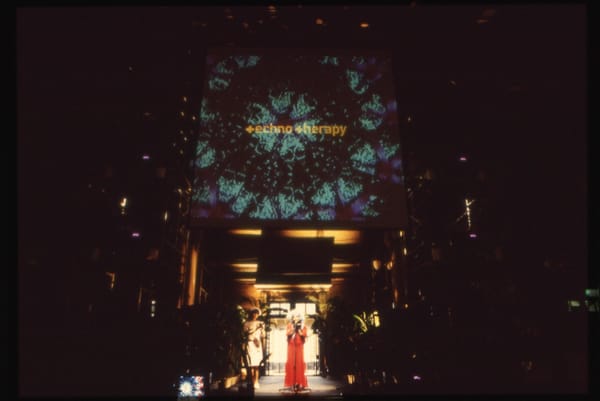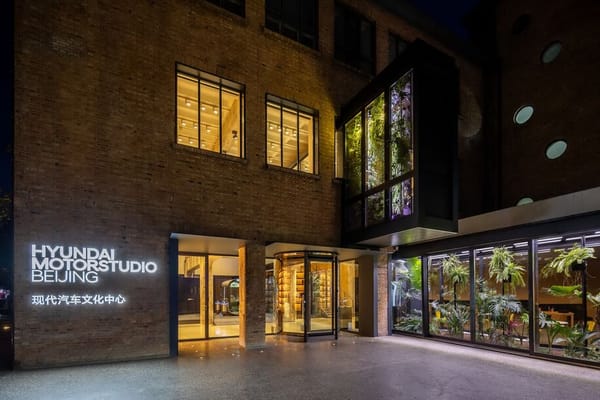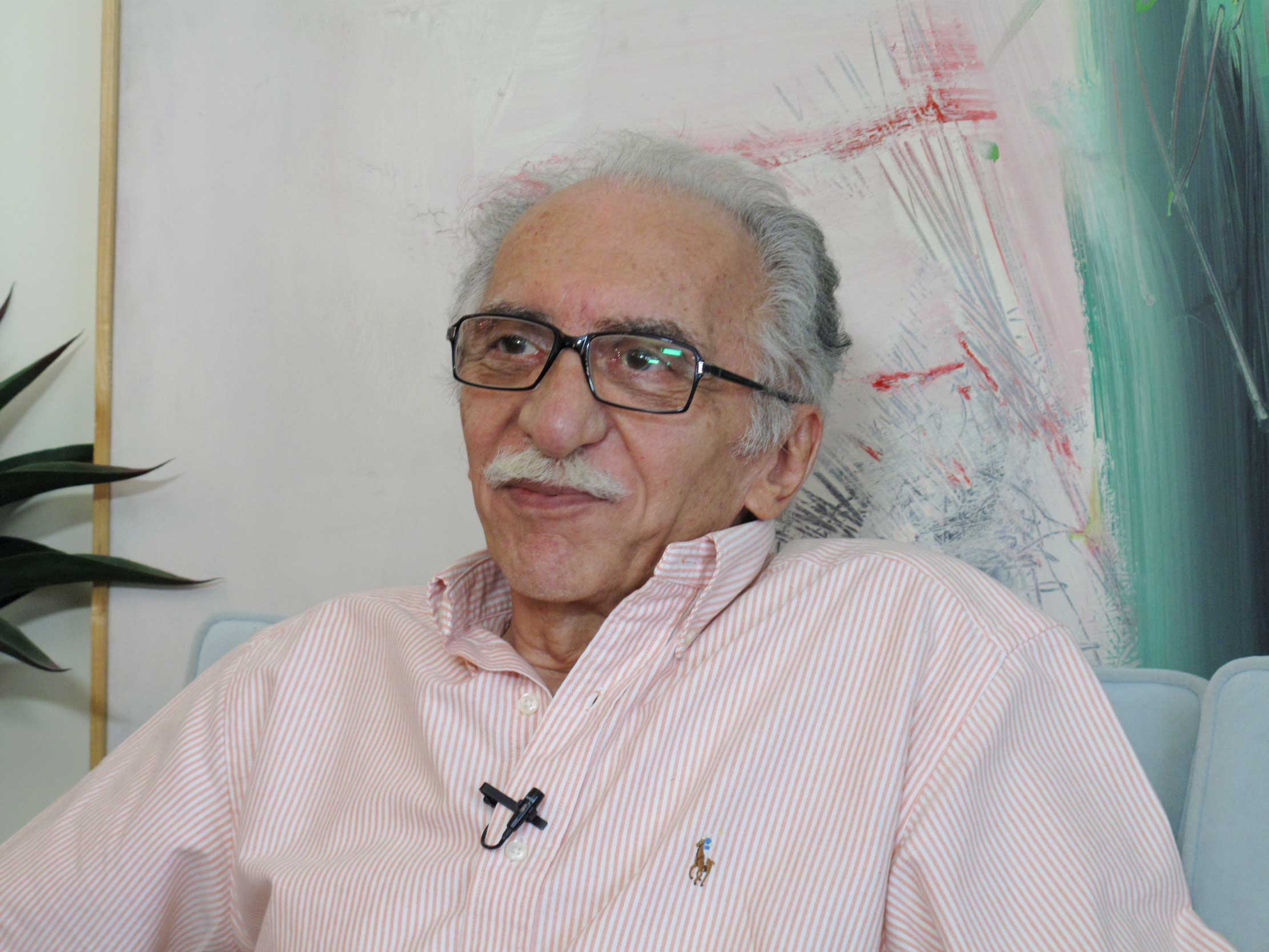Ideas
March Meeting 2022 to Examine Legacies of Colonialism and Emerging Issues in Global Culture
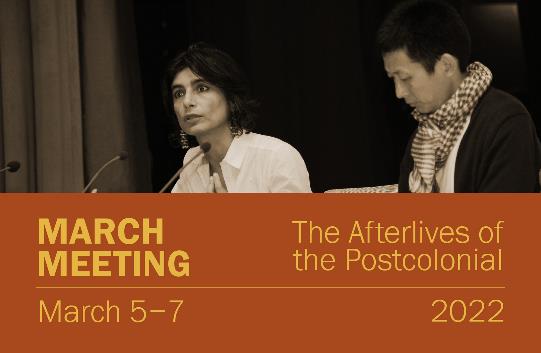
*This is a partnership post

Sharjah Art Foundation (SAF) announced details of the schedule for March Meeting 2022, the Foundation’s annual program that convenes artists, art professionals and academics for panels, lectures and performances exploring critical issues in contemporary art. Taking place from March 5–7, March Meeting 2022: “The Afterlives of the Postcolonial” will examine the legacies of colonialism and the contemporary impacts of related issues on cultural, aesthetic and artistic practices around the world. The 2022 edition expands upon March Meeting 2021: Unraveling the Present, both of which engage with the framework of Sharjah Biennial 15: “Thinking Historically in the Present,” conceived by the late Okwui Enwezor (1963–2019) and curated by SAF Director Hoor Al Qasimi, which opens in February 2023.
Drawing upon Enwezor’s concept of the “Postcolonial Constellation,” March Meeting 2022 will consider contemporary art and issues through the lens of postcolonialism, the critical study of the historical, social and cultural legacies of colonialism and imperialism. From this perspective, participants will analyze current global issues such as racism, settler colonialism, apartheid, new imperial wars, social movements including Black Lives Matter, Indigenous rights, climate change and the restitution and repatriation of looted artifacts. The program will also explore theoretical frameworks such as intersectionality, gendered identities, coloniality, and decoloniality. To discuss the “afterlives” of the postcolonial, March Meeting will convene key voices in art and academia whose work reflects discourses, practices, theories and critical perspectives derived from postcolonialism and focused on the late 20th- and early 21st-century world and its present and future challenges.
“We look forward to expanding upon the prominent themes and complex conversations developed during March Meeting’s 2021 and 2022 editions –as we thoroughly explore the ‘postcolonial’ and its impact around the world in advance of Sharjah Biennial 15,” said Hoor Al Qasimi, SAF President and Director and SB15 Curator. “We aim to honour Enwezor’s legacy and scholarship through each major event, bringing together ideas of the past, present and future, analyzing how our histories intertwine, while emphasizing the importance of supporting contemporary culture outside of Western models by presenting and producing art and discourse that is responsive to our times.”
Featuring more than 40 speakers spread across three days, March Meeting 2022 will offer 11 sessions, including panel discussions and keynote addresses. The sessions will also be available online 30 minutes after the event in real time. Sessions include, among others:
• A keynote conversation between Angela Davis (activist, scholar and author) and Manthia Diawara (professor at New York University and filmmaker).
• A keynote by Gayatri Chakravorty Spivak (University Professor, Department of English and Comparative Literature, Columbia University), titled ‘Imperatives to Reimagine the Postcolonial.’
• An exploration of the scholarship surrounding the restitution and repatriation of looted cultural artifacts with David Adjaye (architect), Ngaire Blankenberg (Director, Smithsonian Museum of African Art), Chika Okeke-Agulu (Director, Program in African Studies and Professor, Art and Archaeology and African American Studies, Princeton University) and artist Michael Rakowitz.
• A discussion focusing on new theoretical constructs that have emerged in the aftermath of the postcolonial or older constructs shaped by it, such as ‘intersectionality,’ ‘feminism’ and ‘gendered identities,’ with Anjali Arondekar (associate professor, Feminist Studies and founding Co-Director, Center for South Asian Studies, University of California, Santa Cruz), Tina Campt (Owen F. Walker Professor, Humanities and Modern Culture and Media, Brown University and visiting Professor, Art and Archaeology, Princeton University) and Naminata Diabate (associate professor, Comparative Literature, Cornell University and Senior Fellow, The Africa Institute, Sharjah);
• A discussion on structural inequalities caused by settler colonialism, segregation and apartheid, featuring Noura Erakat (human-rights attorney and associate professor, Africana Studies and the Program in Criminal Justice, Rutgers University), Premesh Lalu (Professor, History, The Africa Institute) and artist Khalil Rabah.
• A critical examination of the paradox of the celebration of global cultural talent and exchange and the rise of anti-immigration policies in Europe and North America, as unpacked by Zahid Chaudhary (associate Professor, Department of English, Princeton University), Ayesha Hameed (artist and senior lecturer, Visual Cultures, Goldsmiths College, University of London), as well as artists Bouchra Khalili and Rachid Koraichi.
March Meeting 2022 will also feature film screenings and new, site-specific performances by CAMP and Lawrence Abu Hamdan. The event coincides with the opening of several exhibitions, including solo exhibitions of work by Abu Hamdan, CAMP and Khalil Rabah, all opening on March 4 , as well as a retrospective of work by Gerald Annan-Forson, organized in collaboration with The Africa Institute, opening March 7. A retrospective for Aref El Rayess, organized in collaboration with Sharjah Museums Authority and presented at Sharjah Art Museum, will also be on view.
More details on March Meeting schedule and list of speakers are available here.
Enwezor envisioned the invitation to curate Sharjah Biennial 15 as a way to reflect on and contribute to the Biennial’s history and that of the overarching Foundation, and their role in addressing the need for institutional models outside of the West that support dialogue and the production and presentation of contemporary art responsive to our times. Following March Meeting 2021, which examined the 30-year history of the Sharjah Biennial and the future of the biennial model, March Meeting 2022 further engages with Enwezor’s framework for Sharjah Biennial 15, building momentum towards its opening in February 2023. Sharjah Biennial 15: “Thinking Historically in the Present,” will continue to explore these themes, bringing together 30 artists to make commissioned works that explore histories that continue to shape our present, alongside a selection of contemporary works by international artists.
The 30 artists have been invited to embark on major commissions are: John Akomfrah, Kader Attia, Sammy Baloji, María Magdalena Campos-Pons, Carolina Caycedo, Destiny Deacon, Manthia Diawara, Coco Fusco, Hassan Hajjaj, Mona Hatoum, Lubaina Himid, Isaac Julien, Amar Kanwar, Bouchra Khalili, Mohammed Ibrahim Mahama, Kerry James Marshall, Steve McQueen, Almagul Menlibayeva, Aline Motta, Wangechi Mutu, Philippe Parreno, Doris Salcedo, Berni Searle, Yinka Shonibare, Vivan Sundaram, Fatimah Tuggar, Hajra Waheed, Barbara Walker, Nari Ward and Carrie Mae Weems. The Biennial is being realized by Hoor Al Qasimi as curator in conjunction with the Working Group, comprised of Tarek Abou El Fetouh (independent curator); Ute Meta Bauer (professor and founding director of NTU CCA Singapore); Salah M. Hassan (professor and art historian, Cornell University and Director of The Africa Institute, Sharjah); Chika Okeke-Agulu (professor and art historian, Princeton University); and Octavio Zaya (independent curator, art writer and Executive Director of the Cuban Art Foundation). Al Qasimi and the Working Group are overseeing the development and implementation of the Biennial with an Advisory Committee that includes David Adjaye (architect) and Christine Tohmé (director, Ashkal Alwan, Beirut).
Sharjah Biennial 15 began with the 2021 edition of the March Meeting. Held from 12 to 21 March 2021, March Meeting 2021: “Unraveling the Present” examined the 30-year history of the Sharjah Biennial and the future of the biennial model. All talks and panels from March Meeting 2021, which drew more than 4,000 attendees from around the world, are available online. The March Meeting Papers, a series of eleven commissioned essays by art historians and scholars chosen through the March Meeting 2021 open call, are also available online. The 2022 edition of March Meeting will continue these explorations and dialogue in the lead up to the Biennial.
ADDITIONAL INFORMATION
March Meeting 2022: “The Afterlives of the Postcolonial”
March 5–7, 2022
Sharjah Institute of Theatrical Arts
For details on March Meeting schedule and list of speakers, visit the link here.
To register to attend on-site or to access sessions online, visit the link here.
Admission is free.
Sharjah Biennial 15: Thinking Historically in the Present
Opening February 2023
Additional information to be announced; visit sharjahart.org for more information.
About Sharjah Art Foundation
Sharjah Art Foundation is an advocate, catalyst and producer of contemporary art within the Emirate of Sharjah and the surrounding region, in dialogue with the international arts community. Under the leadership of founder Hoor Al Qasimi, a curator and artist, the Foundation advances an experimental and wide-ranging programmatic model that supports the production and presentation of contemporary art, preserves and celebrates the distinct culture of the region and encourages a shared understanding of the transformational role of art. The Foundation’s core initiatives include the long-running Sharjah Biennial, featuring contemporary artists from around the world; the annual March Meeting, a convening of international arts professionals and artists; grants and residencies for artists, curators and cultural producers; ambitious and experimental commissions and a range of travelling exhibitions and scholarly publications.
Established in 2009 to expand programs beyond the Sharjah Biennial, which launched in 1993, the Foundation is a critical resource for artists and cultural organisations in the Gulf and a conduit for local, regional and international developments in contemporary art. The Foundation’s deep commitment to developing and sustaining the cultural life and heritage of Sharjah is reflected through year-round exhibitions, performances, screenings and educational programmes in the city of Sharjah and across the Emirate, often hosted in historic buildings that have been repurposed as cultural and community centres. A growing collection reflects the Foundation’s support of contemporary artists in the realisation of new work and its recognition of the contributions made by pioneering modern artists from the region and around the world.
Sharjah Art Foundation is a legally independent public body established by Emiri Decree and supported by government funding, grants from national and international nonprofits and cultural organizations, corporate sponsors and individual patrons. All exhibitions are free and open to the public.
About Sharjah
Sharjah is the third largest of the seven United Arab Emirates and the only one bridging the Arabian Gulf and the Gulf of Oman. Reflecting the deep commitment to the arts, architectural preservation and cultural education embraced by its ruler, Sheikh Dr Sultan bin Mohammed Al Qasimi, Sharjah is home to more than 20 museums and has long been known as the cultural hub of the United Arab Emirates. In 1998, it was named UNESCO's 'Arab Capital of Culture' and has been designated the UNESCO ‘World Book Capital’ for the year 2019.

